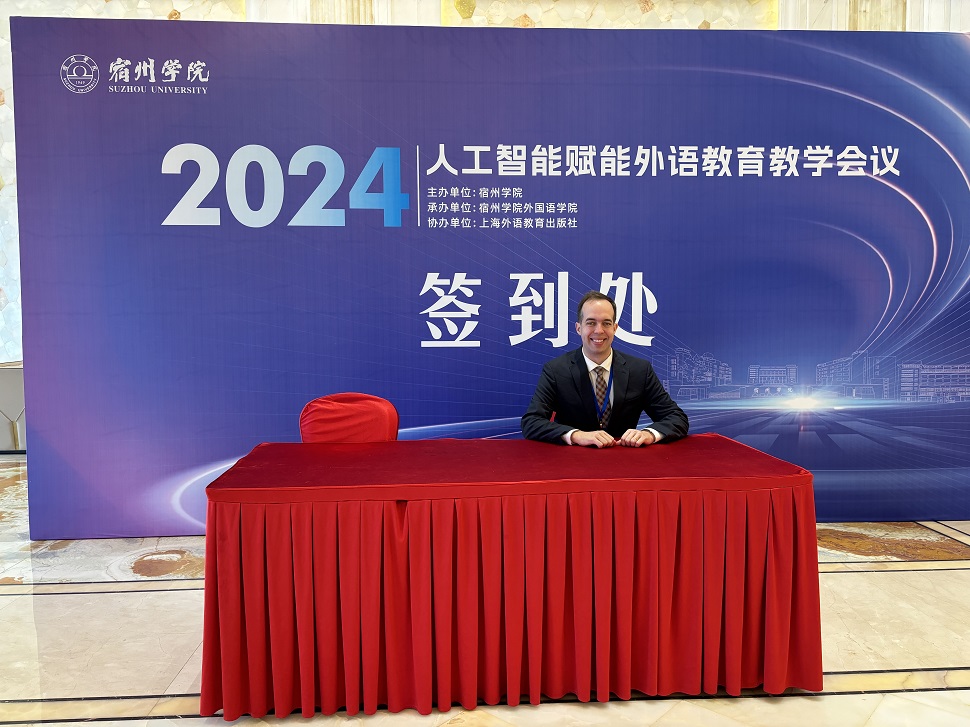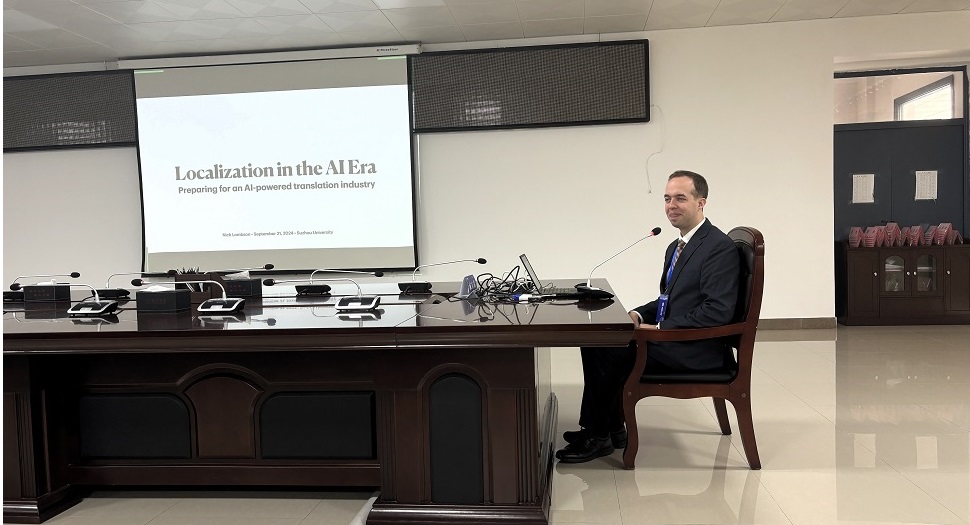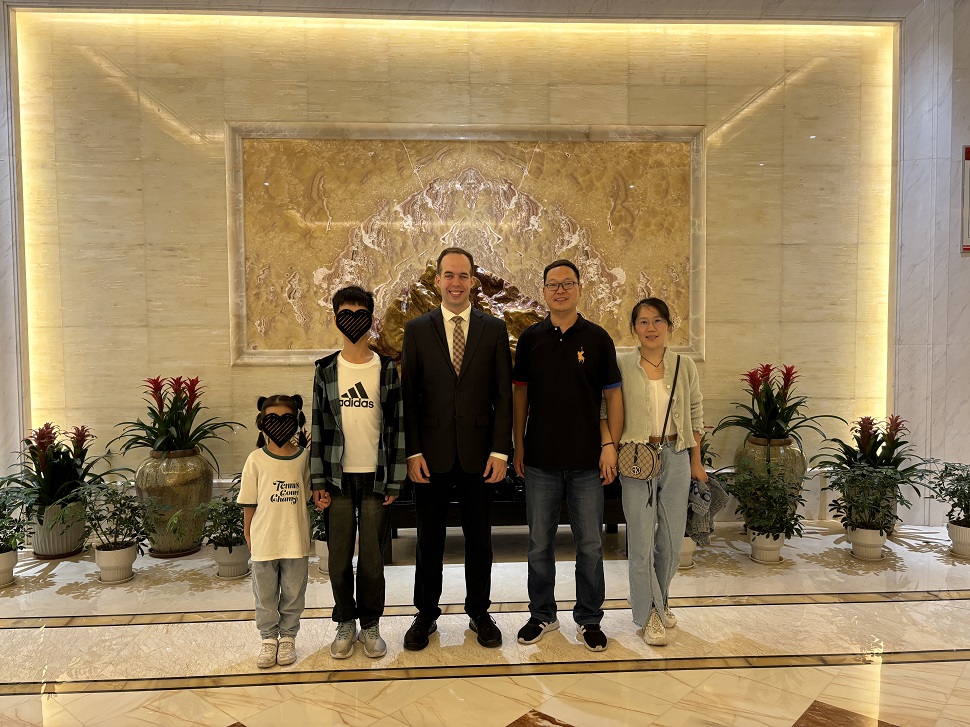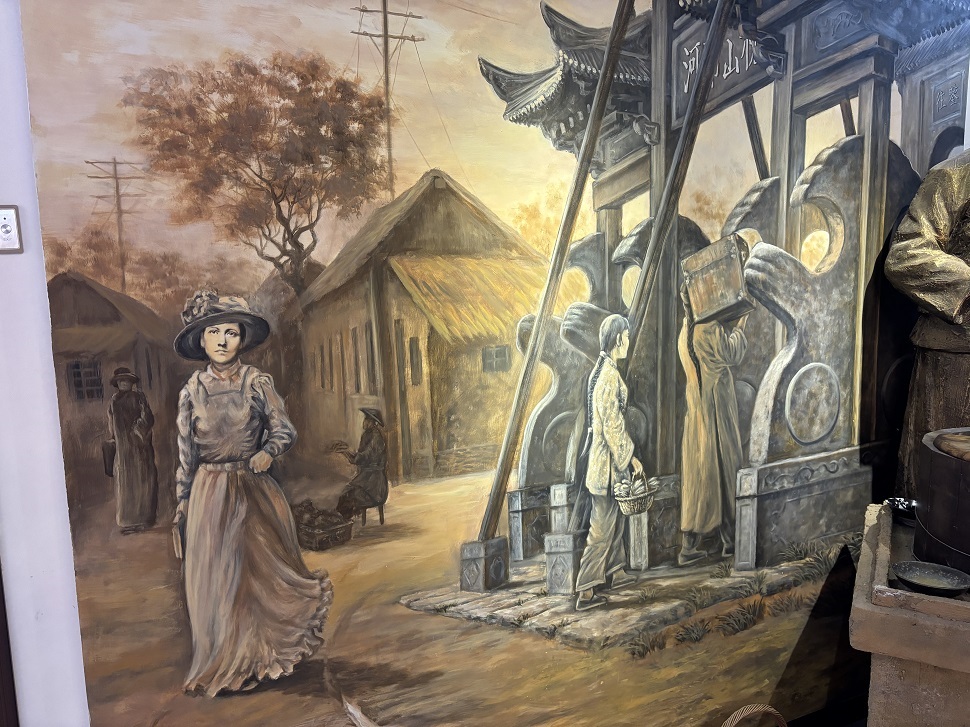
AI in Foreign Language Education at Suzhou University - Keynote Speech
On September 21, 2024, I delivered a keynote speech at the 2024 Suzhou University Conference on AI for Foreign Language Education. I described the technology and business landscape that awaits young graduates entering the translation and localization profession. Below is the abstract of my presentation.

The translation and localization industry is now poised to harness AI tools for enhanced productivity and quality. Companies are designing AI-first workflows with human oversight when necessary, creating a feedback loop where human-generated data perpetually refines AI models. AI-driven quality estimation and automated post-editing are are transforming traditional processes by improving accuracy and reducing turnaround times. AI’s multimodal capabilities are enabling seamless integration of text, audio, and visual elements. Yet, these developments beg the question: Is this still localization as we know it? According to Common Sense Advisory, we have entered the Post-Localization era, signifying a shift from language services to global content services. Industry leaders propose new frameworks, such as “LangOps,” a comprehensive AI language service philosophy. The industry is transitioning into a data-driven ecosystem where the synergy between humans and AI continually optimizes translation outcomes. As we navigate the AI Era, what opportunities and challenges will localization face?

A highlight of my experience in Suzhou was meeting Professor Kevin Wang and his family. He is an excellent professional, a kind friend, and a devoted father. Their two kids are rising stars and they have a bright future ahead of them. Meeting Kevin and his family reflected the Chinese idiom 四海之内皆兄弟, which translates to “within the four seas, all men are brothers.” This idiom emphasizes the idea of universal friendship and brotherhood. It highlights the notion that true connections can transcend borders, making the world feel like a community of friends.

At the North Anhui Museum of Culture and Art, I saw a tribute to Pearl Buck. An acclaimed Nobel Prize-winning author, Pearl had deep connections to China, particularly to Suzhou in Anhui Province. Suzhou served as her home during her early years, providing her with a rich cultural backdrop that greatly influenced her literary work. Pearl Buck was born in the United States but moved to China with her missionary parents when she was only a few months old. Growing up in Suzhou, she was immersed in Chinese culture, language, and customs, which later became vivid themes in her writing. Her profound understanding and appreciation of both Chinese and American cultures allowed her to write with compelling authenticity and empathy, bridging East and West through her novels. Buck’s experiences in Suzhou and beyond laid the foundational perspective for her most celebrated works, including “The Good Earth,” which brought her international recognition and the Nobel Prize in Literature in 1938.